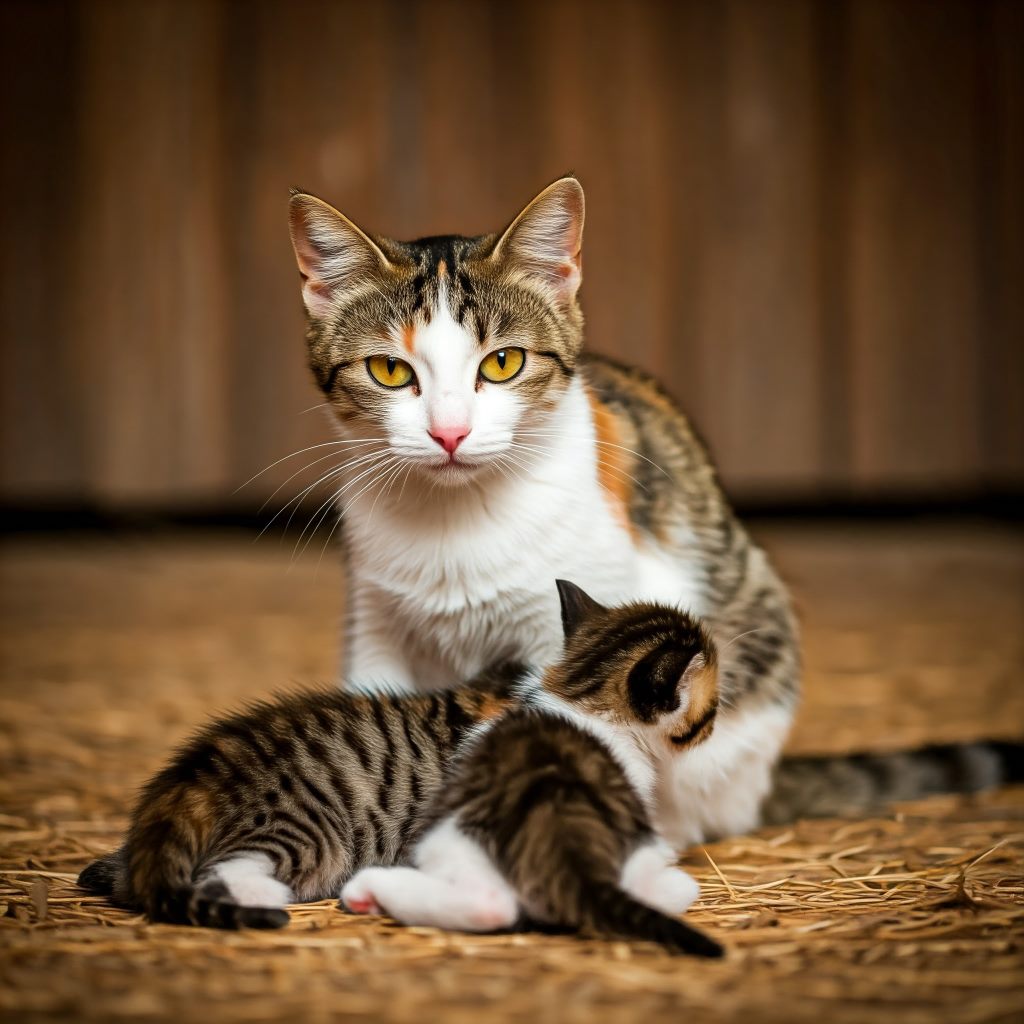
It is normal for female cats to bleed before giving birth. The blood is a sign that the cat’s body is preparing for labor and delivery. This can happen anywhere from one week to two weeks before kittens are born.
Cats typically bleed a small amount before or after giving birth. This is due to the shedding of the placenta and afterbirth.
If your cat is bleeding and there are no kittens in sight, it could be due to a medical condition or an injury. If you notice blood coming from your cat’s vulva, don’t panic; this is perfectly normal!
Cats bleed before giving birth because their bodies are preparing for labor and delivery. They will also experience contractions during this time, which may be painful but aren’t dangerous unless they are severe enough to cause complications such as prolapsed uterus or umbilical cord prolapse.
Cats do bleed after giving birth. It’s normal for them to bleed for a few days, but you should be concerned if it continues after that time.
The bleeding is a result of the placenta being expelled from the uterus and from the uterine lining being shed, both of which are required for the cat to stop lactating and become pregnant again.
Once it has stopped, your cat will be able to go back to normal activities. Most female cats will want to clean themselves after giving birth, and their kittens will need plenty of milk in order to grow strong and healthy.
It’s important not to disturb your cat during this time because she may feel threatened by you or your children, which could cause her to run away or attack you out of fear.
Why Is My Pregnant Cat Bleeding?
As a cat owner, you may be worried about your cat’s health during pregnancy. You may notice blood in her urine or stool, which can cause concern. If you suspect that your cat is bleeding, it’s best to take her to the vet as soon as possible.
Cats will sometimes bleed during pregnancy because they have an underdeveloped placenta. The placenta produces hormones that help regulate the mother’s blood pressure and keep it from dropping too low during pregnancy.
When this hormone is not produced properly, it can cause uterine contractions, which can lead to bleeding. This type of bleeding tends to happen in early pregnancy and typically stops on its own by week 8 or 9 of gestation.
Any sudden change in your cat’s behavior — including lethargy and loss of appetite — should be taken seriously because it could indicate that she’s experiencing an emergency situation like placenta abruption. Other symptoms include rapid breathing, increased heart rate and fever.
How Long After Bleeding Do Cats Give Birth?
If you’re wondering how long after bleeding do cats give birth, the answer depends on whether or not there are any complications in the pregnancy and delivery process. If everything goes smoothly, then the average length of time between bleeding and giving birth is just 30 minutes!
The timing of a cat’s heat cycle is generally predictable, but sometimes nature throws a curve ball. If your cat starts bleeding and then goes into labor, it may be difficult to know how to help her.
Your vet will be able to tell you whether your cat is in labor or experiencing false labor. If your pet is in labor, she’ll need help delivering the kittens. If she’s not in labor, she should be taken to the vet immediately so that he can determine the cause of bleeding (if there isn’t one).
What Are the Signs That Your Cat Is Going Into Labor?
Your cat is going into labor. What does that mean? Labor is a process in which the uterus contracts to expel the fetus and placenta. This occurs after birth, not before, so it’s not something you need to worry about when your cat is pregnant.
What are the signs that your cat is going into labor?
While some cats exhibit no symptoms of labor at all, others show signs such as:
Restlessness – Your cat may be restless and pace around her home or sit at an open door or window.
Increased vocalizations – She may meow more and make more frequent sounds than usual.
Lethargy – While most cats are active and playful most of the time, they may become lethargic or sleepy during labor because of the stress hormones released during this time. This can also happen after giving birth, so don’t panic if your cat seems tired after giving birth as well!
Diarrhea – A change in water consumption leading up to labor can cause diarrhea during birth or shortly afterwards (as early as two hours). Diarrhea often goes away on its own within a few days after giving birth unless it’s caused by another health issue like parasites or illness.
Should I Leave My Cat Alone While Giving Birth?

There are many myths about cats and kittens. One of the most common is that cats should be left alone to give birth. The truth is that it is safe to be with your cat throughout the entire birthing process.
Cats have a very short gestation period of just two months. At any time during those two months, their bodies will be preparing for labor. If you’re thinking about leaving your cat alone while she’s pregnant, wait until she’s at least five weeks pregnant before doing so. Your vet can tell you how far along your cat is based on her size and weight gain.
The biggest reason for not leaving your cat alone during birth is that she needs you by her side. She will be experiencing intense physical pain and possibly emotional distress as well. Although she may appear fine from a human perspective, this is not the case for her. She needs your help, love and reassurance during this time.
If at all possible, stay in the room with your cat while she gives birth. This will help calm her down and make her feel safer. If you can’t be in the room with her, make sure there are no distractions in there so that she can focus on giving birth to her kittens safely. Don’t let children or other pets enter because they may frighten her or distract her from what she needs to do.
Do Cats Make Noise When Giving Birth?
Yes, cats make noise when giving birth. The sounds you hear will depend on the age of your cat, what position she is in and whether she is having a single kitten or multiple kittens.
Cats are generally quiet when they give birth, but they can make a range of sounds to let you know that they need help. Cats in labor may mew, cry out or even howl. If your cat is having trouble delivering her kittens, you’ll hear her crying or meowing loudly.
If you’ve never witnessed a cat giving birth before, it might surprise you how much noise they make during the process. However, there’s nothing to be concerned about — it’s just part of their natural instinct to protect their young from any potential threats.
The reason cats yowl when they’re giving birth is because they’re trying to attract other cats’ attention so that they can get help from them during this vulnerable time in their lives. The mother cat’s cries will alert other nearby cats that she needs assistance with birthing her kittens.

